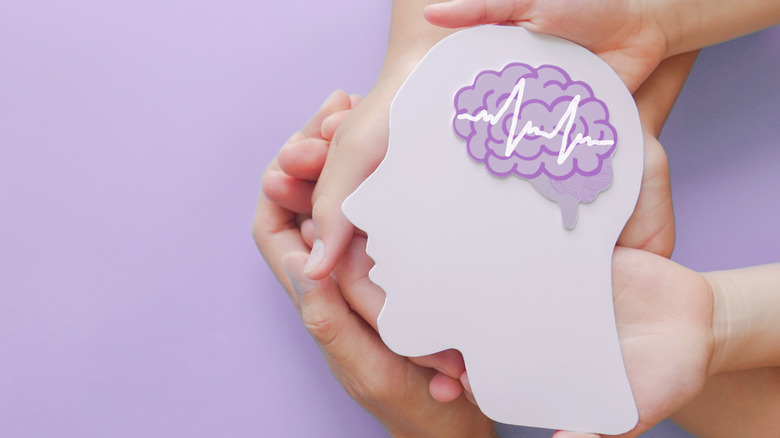How Measuring Brain Age Could Help Doctors Tailor Care For Stroke Patients
With each passing birthday, many of us think about the fact that we are getting older. Although it's something we can't avoid, aging is a risk factor for several health conditions. The likelihood of having a stroke is greatly impacted by age. According to Johns Hopkins Medicine, for every 10 years after the age of 55, the risk for stroke more than doubles.
When a stroke happens, the brain loses its oxygen supply due to a disruption in blood flow. The most common type of stroke, the ischemic stroke, occurs when a blood clot or plaque blocks one of the brain's blood vessels. A hemorrhagic stroke is caused by the rupturing of one of the brain's blood vessels (via Johns Hopkins Medicine). The aftermath of a stroke can be difficult for stroke patients and their families. According to the Centers for Disease Control and Prevention (CDC), stroke rehabilitation can help stroke patients relearn some of the skills they've lost, such as bathing, speaking, and walking. A new study has discovered a method that may help tailor care and predict recovery outcomes for stroke patients
Study links brain age to several stroke risk factors
This week, researchers presented a study at the European Stroke Organisation Conference that utilized a new technology to estimate the brain age of more than 4,000 stroke patients in the United States and Europe, according to Healthline. Radiomics, an image-quantifying technology, can extract information from MRI scans and other images. Those who had a higher brain age than the birth age were those with a history of smoking, high blood pressure, diabetes, or stroke. The recovery outcomes of patients with an older brain age were not as good when compared to patients with a younger brain age.
Experts believe that the study can shed light on brain health and managing stroke risk factors other than age. "It can be useful, even in just to sort of show patients that, hey, there are modifiable risk factors, and your brain is showing some evidence of damage related to those," Dr. Jason Tarpley, a stroke neurologist and director of the Stroke and Neurovascular Center for Pacific Neuroscience Institute at Providence Saint John's Health Center, told Healthline.


